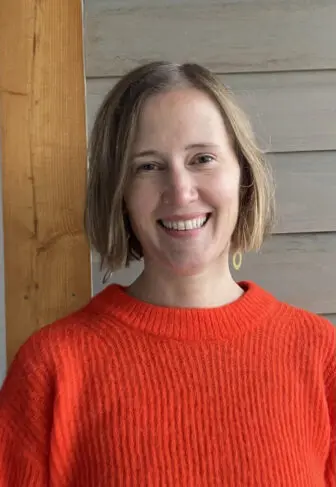Philipstown seniors invited to create theatrical show
One irony of growing older is that the people who have the best stories to tell are often the most isolated, with few opportunities to share their experiences.
Philipstown Aging at Home, a nonprofit founded in 2020, wants to change that dynamic with a theater piece created under the guidance of Kate Czajkowski, who is an experienced actor and director and a licensed social worker.

Czajkowski hopes to recruit 12 to 15 Philipstown seniors to meet at the Philipstown Recreation Center on Friday afternoons from January through April to create an ensemble around storytelling, movement and play. The working title is More to Our Story. There is no cost to participants.
“I use giant Post-Its to record our work on the walls of the space and to remind us of what we’ve made,” explains Czajkowski. “Some themes surface again and again, while other stuff falls away.”
Eventually, scenes emerge that reflect the experiences and shared interests of the ensemble, she says. The project will culminate in a performance for an invited audience of friends and family at the Philipstown Depot Theatre in Garrison.
Czajkowski will host an open house at the Rec Center from 1:30 to 3:30 p.m. on Dec. 16 to answer questions. There’s more information at paah.net.
She developed the program after realizing how much, as a teaching artist, she enjoyed directing students when they presented their original works. At the same time, as her parents grew older, she found herself spending a lot of time with members of the generations that preceded hers. In 2017, Czajkowski pitched the idea of working with older people to the Wilma Theater in Philadelphia, where she had worked as an actor, in partnership with a nearby senior center.
The show that resulted was heavily informed by the #MeToo movement, she says. The positive response led to a second program that focused on resilience and faith.
“I realized, ‘This is what I want to do for my next chapter,’ ” recalls Czajkowski, who moved to Philipstown with her partner in March 2020, at the onset of the pandemic shutdown.
During the initial sessions, the goal will be to have fun and to create space for everyone to contribute, Czajkowski says. She will pay particular attention to what topics engage the group.
“I don’t want to walk into the room with an agenda,” she says. “Something happens when you’re generating material with other people. You become closer, with theater you build a bond. You develop a curiosity and an interest in everyone.”
At a certain point, Czajkowski will meld components, then work with the participants to expand scenes, build transitions and set an order. “Finally, we rehearse what we’ve made,” she says.
“This isn’t a traditional play model with a narrative thread, although there is a structure and emotional flow,” she notes. “We start with low stakes, small material-building exercises, like contributing a sentence of a group poem we write or other ways of getting comfortable with making material.
“Perhaps someone uses a gesture as part of telling a story and that gesture is taught to the group and becomes part of our vocabulary,” she says. “Maybe these gestures are knit together in a dance to underscore a story, or as visual punctuation. There’s a lot of choreography that can be done from a chair.
“There isn’t a lead performer, which means that if someone doesn’t show up, the work doesn’t topple, it just changes. We are building from the materials of their lived experience, so they should be able to opt out of sharing something at the last minute without it being an issue.”
Czajkowski says that “trauma comes up in the room, sometimes. But we aren’t seeking out the pain points. We are there to share and bear witness to whatever comes up.”
That’s one of the reasons, she says, she decided to enroll at Hunter College to earn a degree in social work. (She also has an MFA in acting from Temple University.) “I needed to be better equipped to do this,” she says.
“This is what I would like to do with my life,” she adds. “There’s this great untapped resource in our elders.”

